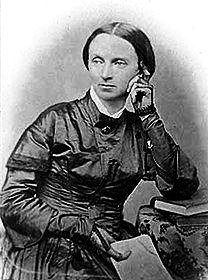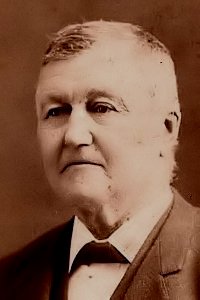Introduction

Words: Elizabeth A. Allen, in The Atlantic Monthly, Volume 2, number 10, August 1858, page 333.
Music: Henry S. Rupp, in Hymns and Tunes (Elkhart, Indiana: Mennonite Publishing, 1890), number 263 (🔊 pdf nwc).

He that goeth forth and weepeth, bearing precious seed, shall doubtless come again with rejoicing, bringing his sheaves with him.
Psalm 126:6

Words: Elizabeth A. Allen, in The Atlantic Monthly, Volume 2, number 10, August 1858, page 333.
Music: Henry S. Rupp, in Hymns and Tunes (Elkhart, Indiana: Mennonite Publishing, 1890), number 263 (🔊 pdf nwc).

The time for toil is past, and night has come,
The last and saddest of the harvest eves;
Worn out with labor long and wearisome,
Drooping and faint, the reapers hasten home,
Each laden with his sheaves,
Each laden with his sheaves.
Last of the laborers, Thy feet I gain,
Lord of the Harvest! and my Spirit grieves
That I am burdened not so much with grain,
As with a heaviness of heart and brain;
Master, behold my sheaves!
Master, behold my sheaves!
Few, light, and worthless—yet their trifling weight
Through all my frame a weary aching leaves;
For long I struggled with my hapless fate,
And stayed and toiled till it was dark and late,
Yet these are all my sheaves,
Yet these are all my sheaves.
Full well I know I have more tares than wheat,
Brambles and flowers, dry stalks, and withered leaves;
Wherefore I blush and weep, as at Thy feet
I kneel down reverently, and repeat
Master, behold my sheaves,
Master, behold my sheaves!
I know these blossoms, clustering heavily
With evening dew upon their folded leaves,
Can claim no value nor utility;
Therefore shall fragrancy and beauty be
The glory of my sheaves,
The glory of my sheaves.
So do I gather strength and hope anew;
For well I know Thy patient love perceives
Not what I did, but what I strove to do;
And, though the full, ripe ears be sadly few,
Thou will accept my sheaves,
Thou will accept my sheaves.